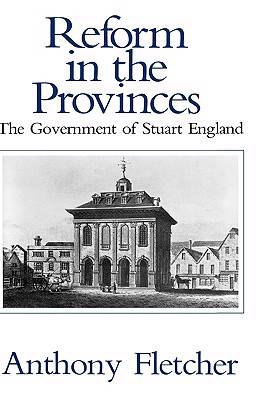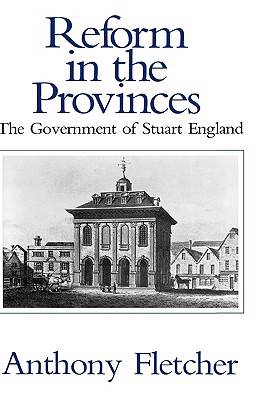
- Retrait gratuit dans votre magasin Club
- 7.000.000 titres dans notre catalogue
- Payer en toute sécurité
- Toujours un magasin près de chez vous
- Retrait gratuit dans votre magasin Club
- 7.000.0000 titres dans notre catalogue
- Payer en toute sécurité
- Toujours un magasin près de chez vous
135,95 €
+ 271 points
Description
The foundation of the English state from the reigns of the Tudors to the age of Queen Victoria was a partnership between the crown and the country gentlemen who exercised administration and justice in the localities. This book is about a formative period in the making of that partnership. Anthony Fletcher suggests that the gentry's vigorous response to a gathering social crisis in the early decades of the seventeenth century enabled them to strengthen their nearly dominant hold upon local power. Although reform in the provinces, directed towards improving the efficiency and effectiveness of government, was not a tidy or even an entirely consistent process, there was enough continuity of administrative effort to ensure that by the reign of Queen Anne the enforcement of order had been streamlined in many respects. This book - the first synthesis of work done in the last two decades on local government - also provides fresh archival data on a number of counties. Fletcher begins with an account of the men who held office as justices of the peace and of their relationships with the Council in London and with the villagers they governed. He then explores in detail the world of the magistrate at work, paying particular attention to initiatives directed towards increasing the tempo of government and to the making of magisterial policy. In the second half of the book, Fletcher utilizes three case studies - of poverty, behaviour, and the militia - to explain the obstacles in the way of reform and assess how it was sometimes achieved. By analyzing the patterns, style, and impetus of the government that magistrates and deputy lieutenants achieved, Fletcher is able to explore fundamental changes in the nature and extent of gentry control and in the attitudes of the gentry to the public service. His book is an important and original contribution to Stuart and Restoration history. Anthony Fletcher has been Professor of History at the Universities of Sheffield, Durham and Essex, and Director of the Victoria County History Project at London University. His books include 'Gender, Sex, and Subordination in England, 1500-1800', published by Yale.
Spécifications
Parties prenantes
- Auteur(s) :
- Editeur:
Contenu
- Nombre de pages :
- 404
- Langue:
- Anglais
Caractéristiques
- EAN:
- 9780300036732
- Date de parution :
- 01-07-86
- Format:
- Livre relié
- Format numérique:
- Genaaid
- Dimensions :
- 161 mm x 240 mm
- Poids :
- 798 g

Les avis
Nous publions uniquement les avis qui respectent les conditions requises. Consultez nos conditions pour les avis.






